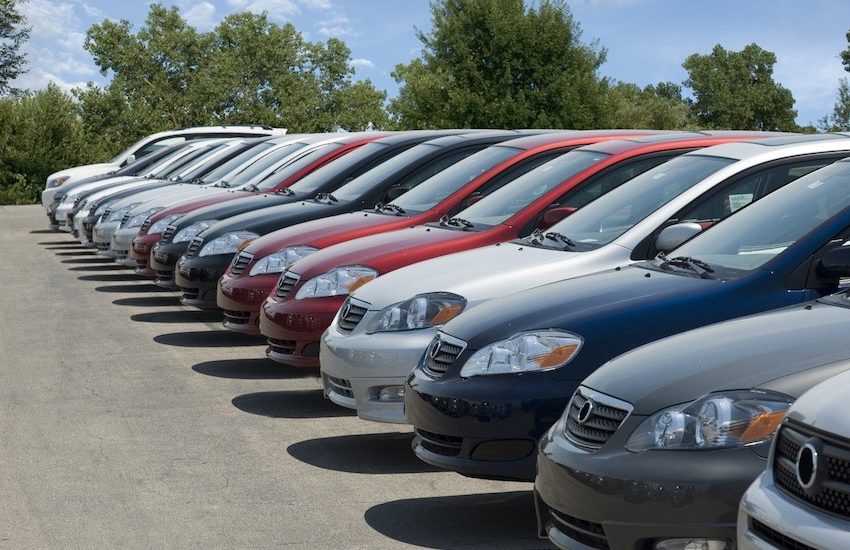How to Determine if You’re Getting a Fair Price for Used Cars for Sale in Lahore?

Buying a used car in Lahore can be an excellent way to get a reliable vehicle at a reasonable price, but determining whether you’re getting a fair deal is crucial. The bustling used car market in Lahore offers plenty of choices, but prices can vary based on factors like the car’s condition, model year, mileage, and market demand. Here’s a guide to help you make an informed decision and ensure you get a fair price when purchasing a used car for sale in Lahore.
1. Research Market Prices
The first step to knowing if you’re getting a fair price is researching the market. Look for prices of similar models of used cars for sale in Lahore to get a baseline idea of the going rate. Here’s how you can start:
- Online Listings: Browse multiple websites and forums where individuals or dealers list used cars for sale. Pay attention to how much similar models with comparable mileage and features are priced.
- Visit Local Dealerships: Check the prices of the same models at local dealerships to compare with private sellers.
- Identify Price Variations: Notice any significant price variations between private sales and dealer offers. While dealer prices may be slightly higher due to warranties or service offerings, private sellers might offer lower prices but without added security.
2. Understand Depreciation Rates
Depreciation plays a significant role in used car prices. The value of a car decreases over time, but some cars depreciate faster than others. Popular models in Lahore like the Toyota Corolla or Suzuki Cultus tend to hold their value better due to their high demand and easy availability of parts.
- Make and Model: Research the average depreciation rate for the make and model you’re interested in. For example, Japanese cars like Honda and Toyota generally depreciate slower than some other brands.
- Age of the Car: As a general rule, a car loses most of its value within the first five years. A 3-year-old car may still have a high resale value compared to one that’s 7-10 years old.
3. Inspect the Condition of the Car
The condition of the car significantly affects its price. A well-maintained car in good condition can command a higher price, while a vehicle with damage or wear and tear should be priced lower. Here’s what to look for when inspecting the car:
- Exterior and Interior: Examine the car’s body for any signs of damage, dents, scratches, or rust. The interior condition is just as important—check for wear on the seats, dashboard, and electronics.
- Engine and Mechanical Health: Make sure the engine runs smoothly. Any unusual sounds, leaks, or warning lights could indicate problems that would lower the car’s value.
- Mileage: Lower mileage cars generally come with a higher price tag, but if a high-mileage car has been well-maintained, it can still be a good deal.
4. Check the Car’s Service History
The car’s service history is a critical factor in determining whether it’s priced fairly. A complete service history, showing regular maintenance and timely repairs, usually increases the value of a used car. On the other hand, a car with a missing or incomplete service record may have hidden issues, making it worth less than a similar car with a detailed history.
- Ask for Documentation: Always ask the seller to provide service records and receipts. These documents will show if the car has undergone necessary repairs and if it’s been properly maintained.
- Beware of Missing Records: If the seller is unable to produce any maintenance history, you may want to negotiate for a lower price, as it indicates uncertainty about the car’s reliability.
5. Get a Professional Inspection
If you’re uncertain about the car’s condition, it’s worth investing in a professional inspection. Many mechanics in Lahore offer pre-purchase inspection services to ensure the car doesn’t have any hidden problems. A mechanic can check for issues you might miss, such as engine problems, transmission issues, or signs of previous accidents.
- Hidden Repairs: A mechanic will also be able to spot hidden repairs or damage that may have been covered up. If the car has been in an accident or had significant repairs, it should be priced lower.
- Mechanical Health: A comprehensive report from the mechanic will help you negotiate a fair price based on the car’s actual condition.
6. Check Vehicle Registration and Legal Status
In Lahore, it’s essential to verify that the car’s paperwork is in order. A car with incomplete or unclear registration documents may be priced lower, but it comes with significant risks.
- Ownership Transfer: Ensure the vehicle has a clear ownership history and that transferring ownership to your name won’t be problematic.
- CPLC and Excise Clearance: Run the car’s details through the CPLC (Citizen-Police Liaison Committee) and excise department databases to ensure it hasn’t been involved in illegal activities or stolen.
7. Consider Additional Costs
When determining if the price is fair, don’t forget to factor in any additional costs you might incur after the purchase, such as:
- Registration Fees: If the car needs to be re-registered or if the token tax is due, this will add to your cost.
- Repair and Maintenance Costs: Even if the car seems to be in good condition, it’s a good idea to budget for potential repair costs, especially for older models.
- Insurance: You’ll need to get the car insured after purchasing, which adds to the overall cost.
8. Negotiate Smartly
Once you’ve gathered all your research, it’s time to negotiate. Sellers, particularly in Lahore’s used car market, often price their cars slightly higher, expecting buyers to negotiate. Use the information you’ve collected to negotiate confidently.
- Cite Market Research: Show the seller what similar cars are selling for to justify why you’re offering a lower price.
- Highlight Any Issues: If the car has flaws, like high mileage, repair needs, or incomplete service history, use these points to push for a lower price.
- Stay Calm and Polite: The key to successful negotiation is maintaining a friendly but firm attitude. Be willing to walk away if the seller refuses to budge on a price that seems too high.
9. Use the Vehicle Identification Number (VIN) Check
The Vehicle Identification Number (VIN) is like the car’s fingerprint. You can use the VIN to check the car’s history and ensure there are no hidden issues like major accidents, odometer rollback, or recalls that should affect the price.
- VIN Report: Some online services allow you to run a VIN check to see the vehicle’s complete history. A clean record will justify a higher price, while any red flags should lower the car’s value.
10. Consider the Seller’s Reputation
The reputation of the seller, whether it’s a dealership or a private seller, can also influence the price. Dealerships often offer warranties and post-purchase support, which may justify a higher price, while private sellers may offer lower prices but with fewer guarantees.
- Read Reviews: If buying from a dealer, check customer reviews online to gauge their reliability.
- Assess the Seller’s Behavior: If the seller is pushing you to make a quick decision or seems hesitant to answer your questions, take it as a red flag.
Conclusion
When buying a used car in Lahore, determining if you’re getting a fair price involves careful research, inspections, and negotiations. By comparing prices in the local market, evaluating the car’s condition, and considering factors like depreciation, service history, and additional costs, you can confidently assess the vehicle’s value. Remember, a little extra effort upfront can save you from overpaying and ensure you get a car that meets your needs and budget.



